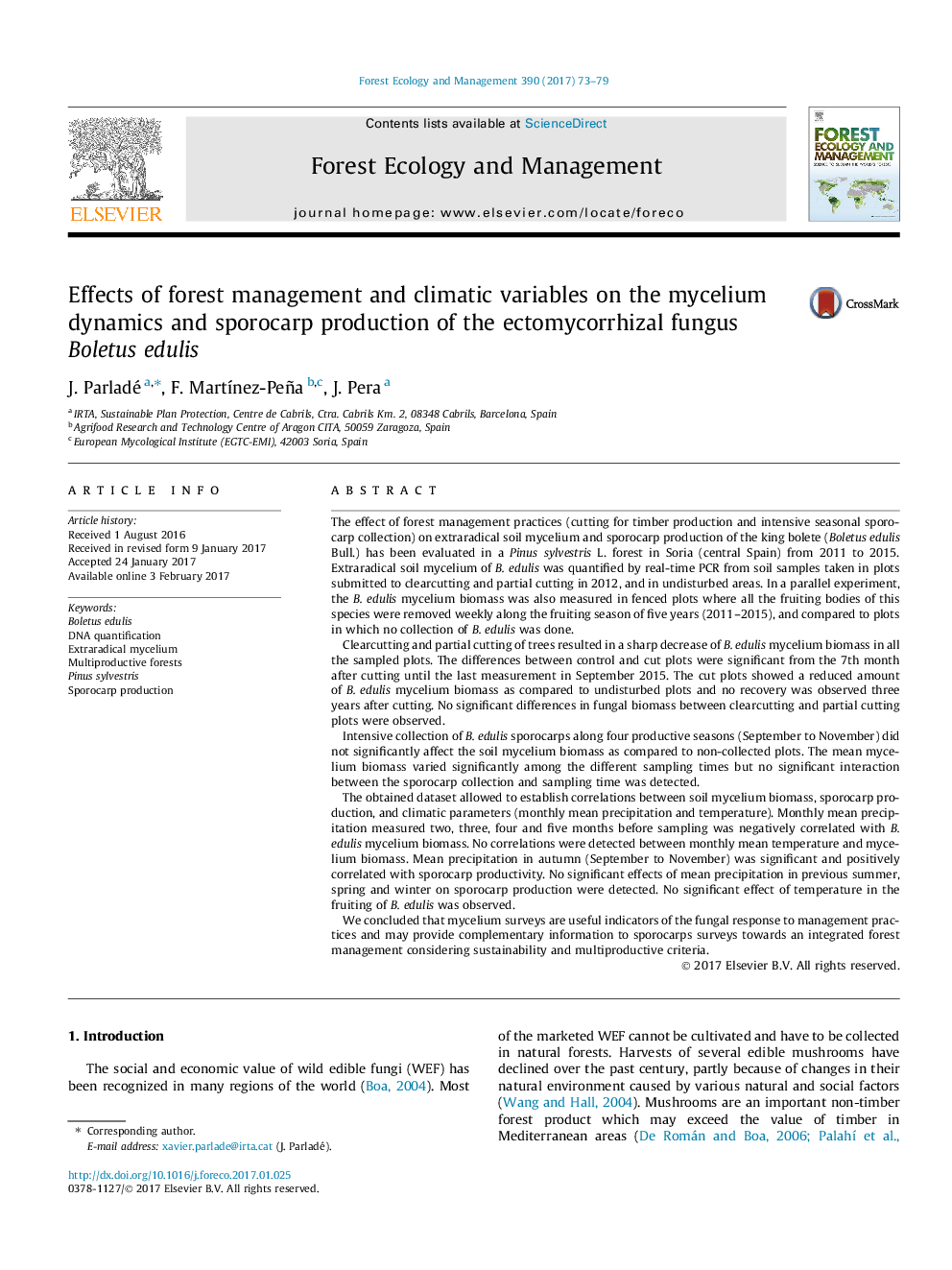| کد مقاله | کد نشریه | سال انتشار | مقاله انگلیسی | نسخه تمام متن |
|---|---|---|---|---|
| 6459509 | 1421368 | 2017 | 7 صفحه PDF | دانلود رایگان |

- Forest management affects Boletus edulis soil mycelium and sporocarp production.
- Tree cutting dramatically reduces soil mycelium biomass of Boletus edulis.
- Intensive sporocarp collection does not affect soil mycelium biomass of Boletus edulis.
- Precipitation in autumn is positively correlated with Boletus edulis fruiting.
- Mycelium biomass of Boletus edulis in autumn is correlated with sporocarp production.
The effect of forest management practices (cutting for timber production and intensive seasonal sporocarp collection) on extraradical soil mycelium and sporocarp production of the king bolete (Boletus edulis Bull.) has been evaluated in a Pinus sylvestris L. forest in Soria (central Spain) from 2011 to 2015. Extraradical soil mycelium of B. edulis was quantified by real-time PCR from soil samples taken in plots submitted to clearcutting and partial cutting in 2012, and in undisturbed areas. In a parallel experiment, the B. edulis mycelium biomass was also measured in fenced plots where all the fruiting bodies of this species were removed weekly along the fruiting season of five years (2011-2015), and compared to plots in which no collection of B. edulis was done.Clearcutting and partial cutting of trees resulted in a sharp decrease of B. edulis mycelium biomass in all the sampled plots. The differences between control and cut plots were significant from the 7th month after cutting until the last measurement in September 2015. The cut plots showed a reduced amount of B. edulis mycelium biomass as compared to undisturbed plots and no recovery was observed three years after cutting. No significant differences in fungal biomass between clearcutting and partial cutting plots were observed.Intensive collection of B. edulis sporocarps along four productive seasons (September to November) did not significantly affect the soil mycelium biomass as compared to non-collected plots. The mean mycelium biomass varied significantly among the different sampling times but no significant interaction between the sporocarp collection and sampling time was detected.The obtained dataset allowed to establish correlations between soil mycelium biomass, sporocarp production, and climatic parameters (monthly mean precipitation and temperature). Monthly mean precipitation measured two, three, four and five months before sampling was negatively correlated with B. edulis mycelium biomass. No correlations were detected between monthly mean temperature and mycelium biomass. Mean precipitation in autumn (September to November) was significant and positively correlated with sporocarp productivity. No significant effects of mean precipitation in previous summer, spring and winter on sporocarp production were detected. No significant effect of temperature in the fruiting of B. edulis was observed.We concluded that mycelium surveys are useful indicators of the fungal response to management practices and may provide complementary information to sporocarps surveys towards an integrated forest management considering sustainability and multiproductive criteria.
Journal: Forest Ecology and Management - Volume 390, 15 April 2017, Pages 73-79